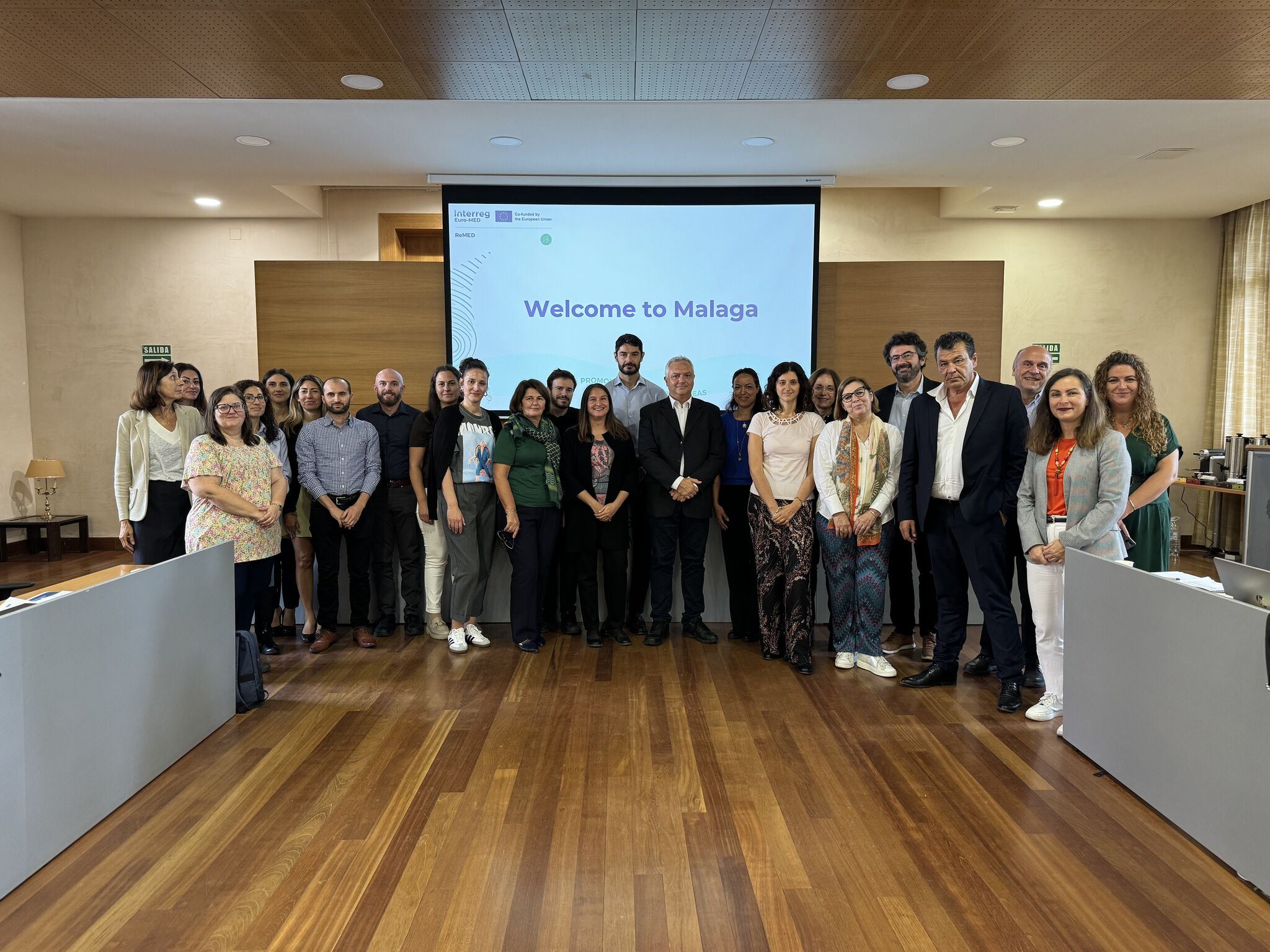The Interreg Euro-MED project ReMED – Towards Climate Resilient Mediterranean Cities held its 2nd Project meeting in the partner municipality of Málaga between the 15th and 16th October 2024. This served as a continuation from the 1st Project meeting held in Malta earlier this year in February, hosted by the lead partner – University of Malta. During the sessions, members from all consortium partners shared the various commitments the Project needs to fulfil.

Day 1 – 15th October
Day 2 – 16th October
At the beginning of the meeting, Prof Ruben Paul Borg from the University of Malta, as lead partner of the Project, reviewed all the activities and events carried out so far in the ReMED project. This presentation was followed by contributions from Arch. Andrea Moro (iiSBE) who explained the general structure of the Project method and Dr. Costas Balaras (NOA),who spoke about the study carried out with the indicators provided by the partners related to Work Package 1.
Arch. Moro also presented the ReMED Assessment Method. He explained how the risk factor is calculated by the multiplication of the values of the hazards, exposure and vulnerability, each of which are affected by the corresponding corrective weights. Chivasso an Italian neighbourhood close to Turin was used as a case study to explain the tool. Mr. Moro described also the RNTool (Resilience Neighbourhood Tool) and RBTool (Resilience Building Tool). These tools distinguish between the risks affecting neighbourhoods or buildings. Related data sheets and assessment criteria were referred to in the presentation.
During the first day of the Malaga meeting, partners discussed the Local Project Committees (LPC) meeting held in the respective localities, the e-learning platform and the decision support framework of the Project.
The second day of the meeting began with a presentation by Ms. Natushka Mulvaney, financial manager of the project from the University of Malta, regarding procedures related to the partners’ reports. This information session was later complemented by the intervention via video call by Ms. Agathe Spitz, ReMED Project Officer.
The programme of the 16th October included a presentation by Dr. Balaras where he explained the results of the analysis of the carbon footprint generated by the project. Ms. Elena Bazzan from iiSBE spoke about the first Transnational Project Committee (TPC), for which numerous stakeholders have already been contacted. The communication strategy, was presented by Arch and Civil Eng. Faye Sciberras from the University of Malta. She reviewed the dissemination of the project deliverables and results through the website, a media kit, the publication of a video, social networks and different events. Ms. Paola Borgaro from iiSBE focused on financial and procedural aspects.
The meeting was concluded with a review by Prof. Ruben Paul Borg followed by a Steering Committee which addressed operational procedures.
The participants had the opportunity to visit the city of Malaga and hence learn more and appreciate better one of the pilot sites under study as part of the ReMED Project.

